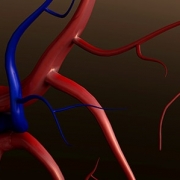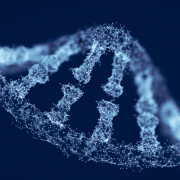Genomics: curing the kidney
Developments in genomic understanding and technology are having a big impact in the field of nephrology
One of the very first rare disease patients to receive a genetic diagnosis under the auspices of the 100,000 Genomes Project had an inherited form of kidney disease; finding the underlying genetic variant made it possible to test his family members and determine which were at risk of developing the same disease – and which were thankfully free of it.
Inherited kidney disease
There are many different forms of inherited kidney disease, of which the most common is autosomal dominant polycystic kidney disease (ADPKD) – the leading genetic cause of end-stage renal failure, which affects around 7% of new adult renal replacement therapy patients.
ADPKD is caused by mutations in the PKD1/2 genes, and clinical symptoms typically appear in adulthood, with 60% of patients having kidney failure by the age of 60. However, the age of onset and severity of disease can be highly variable, and many cysts develop in children and adolescents ahead of symptomatic disease. The condition also results in hypertension, which is a significant risk factor for cardiovascular disease.
The complex web of kidney dysfunction
Autosomal recessive polycystic kidney disease (ARPKD) is a much rarer form of genetic cystic kidney disease, affecting around one child born in every 20,000 (as opposed to around one in every 800 for ADPKD). There are also a number of other inherited genetic disorders that cause cystic forms of kidney disease, such as Alport Syndrome , and a whole range of other specific renal disorders with a genetic basis, many of them individually rare. Some result in physical malformations of the kidney, often detectable before birth.
To these must be added inherited diseases that affect multiple organs including the kidney, which include forms of inherited metabolic disease and conditions such as cystinuria, tuberous sclerosis and Von Hippel Lindau disease . Together, inherited conditions have been estimated to account for around 10% of all adult kidney disease cases seen by nephrologists, and up to 50% of children receiving dialysis.
The potential for new diagnosis and treatment
As major research efforts such as the 100,000 Genomes Project progress, the number of conditions linked with kidney disease increases, and further light is shed on the genetics underlying both rare and common forms of disease. This can directly aid treatment, as well as diagnosis and clinical management.
For example, genetic variants in the UMD (uromodulin) gene are associated with susceptibility to chronic kidney disease – making the uromodulin protein an attractive potential target for new drugs to treat raised blood pressure and improve renal function. This sort of insight can generate real results: the hitherto untreatable atypical Haemolytic-Uraemic Syndrome (aHUS) can now be treated with Eculizumab, an inhibitor of the complement blood-clotting pathway, in patients who have variations in complement pathway genes (but not in aHUS patients with variations in the non-complement gene, DGKE).
Unsurprisingly, genomic testing is increasingly an important tool in nephrology practice – especially since the advent of panel testing and whole genome sequencing to allow searches for multiple disease-associated variants within multiple genes, which have opened up the possibility of diagnosing rare causes of kidney disease. Specialist renal genetics clinics are becoming more common, as kidney specialists work alongside clinical geneticists, genetic counsellors and genetic scientists to provide the best care for patients in line with genomic advancements.
–
Please note: This article is for informational or educational purposes, and does not substitute professional medical advice.









